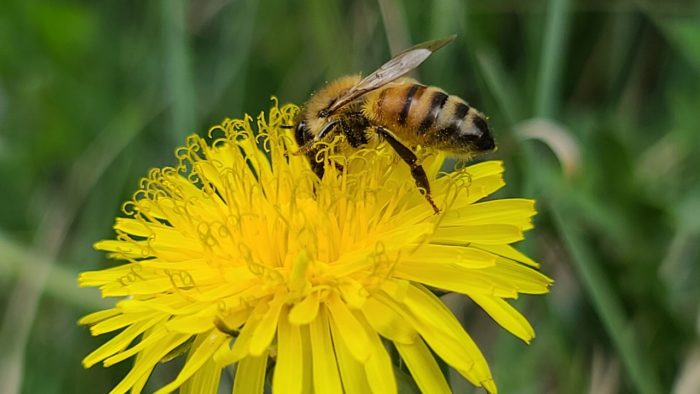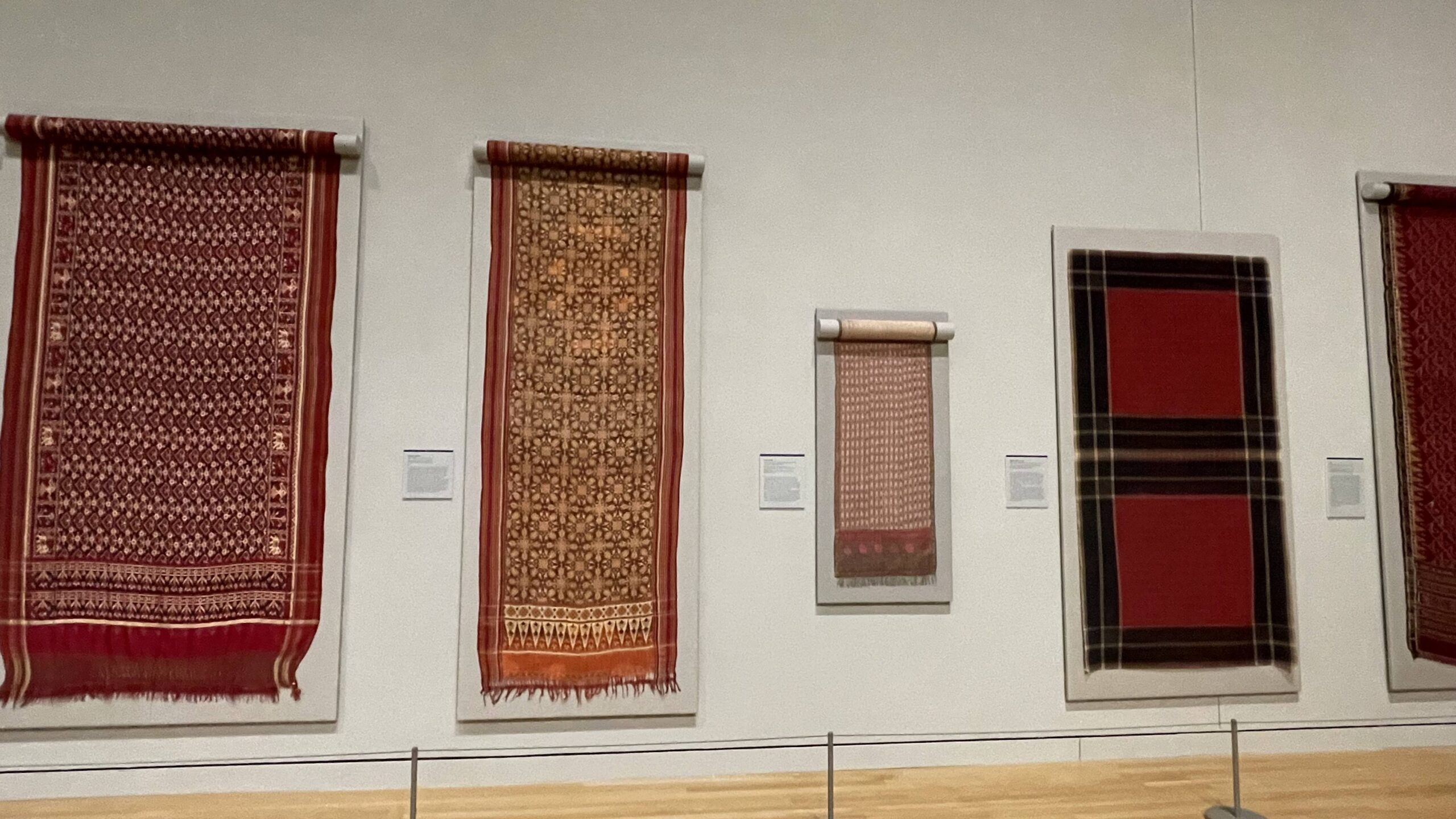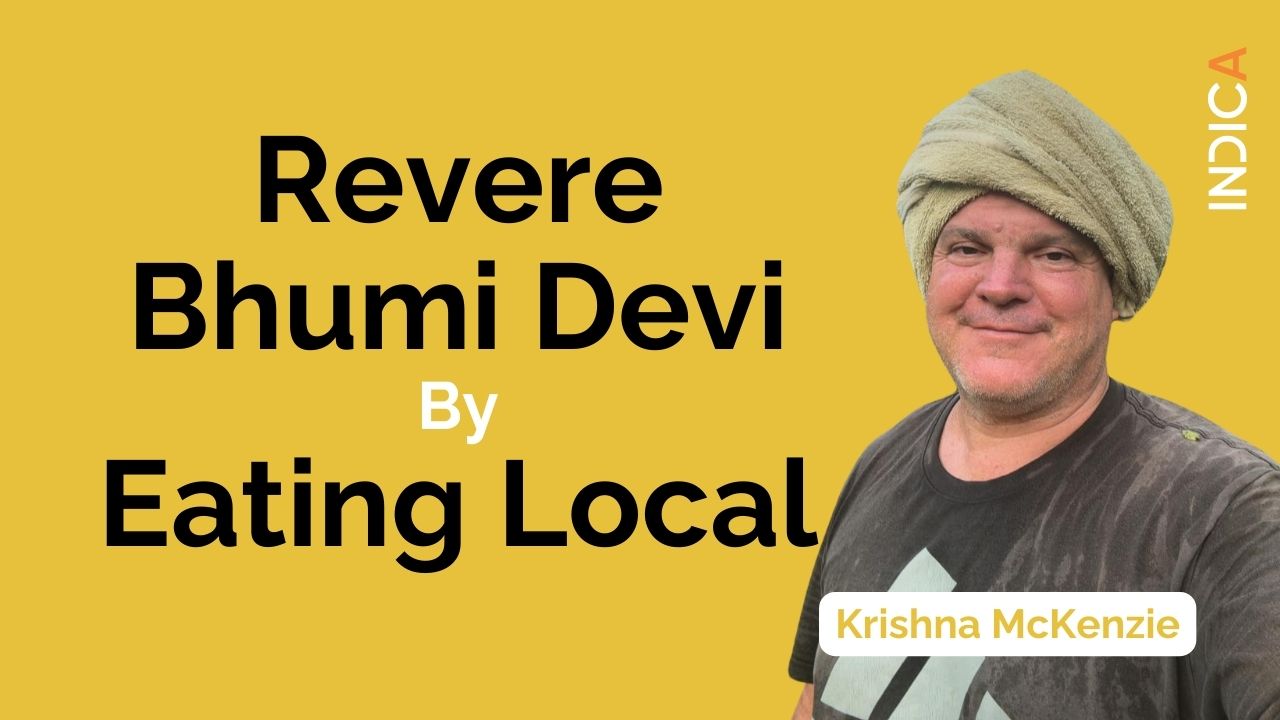Vedic Philosophy and its practice leads to Personal Well Being (Athma Shanthi) which permeates and in due course becomes Universal Well-Being (Sarve’ Jana Sukino' Bhavanthu)!
A flower with its fragrance attracts bees for its pollination and prosperity; yet the same fragrance spreads for everyone in the vicinity to enjoy, as the breeze passes by and spreads the fragrance. The flower, its fragrance, bees, pollination, breeze and the spreading of fragrance are all part of nature (Brahman). "I" as an individual (flower) and its properties (Guna), the use of my thoughts (bees and pollination), Spreading of my thoughts and actions involuntarily for the benefit of many is also part of nature (I am Brahman - Aham Brahmasmi). At some point this becomes our universal perspective (inclusion of all and exclusion of none) and second nature (Thath Thwam Asi - I and the universe are integral in each other). ---- This is the essence of Vedanta.
Unlike the flower which merely exists (grows, pollinates, creates new plants and dies) "I" can do all that AND observe and manage my thoughts at the core of my being! Managing my thoughts (and actions as a result) is Gnana Yoga - Internal or self-reflection through reasoning and objective analysis.
Managing my physical body (and the fitness of various parts of the body) is the "Yoga" - self-controlled exercise of breathing and physical movements - taught and practiced today. This Yoga is meant for better health and physical well-being. Meditation as a form of Yoga is also taught and practiced for betterment of our emotional well-being. While both are good and much needed, self-regulation of our thoughts which lead to our actions is also very much needed.
Today worldwide there is a drive for wanting more and a feeling of never it is enough. There are many reasons as to why we are driven by a culture of Consumerism. This affliction is more felt by the educated and those acquainted with Western and Urban way of living. One eminent scholar of Philosophy told me that "Vedanta - the essence of Vedas - is the way of life for many rural Indians. It comes to them from their upbringing and hence self-taught through life experiences. Even among the urban population, one can see this philosophic perspective as a way of life in a poor taxi driver more than in a rich person riding in the taxi."
In some respects the scholar is correct. Somehow I feel the outlook on life that Vedanta is to be learned only as an outcome of a life-time of experience in the school of hard knocks is self-defeating. Reading and learning Vedanta is seen today as the realm of the old and those in a monastic way of life with limited means and wants. There is a general aptitude for listening to lectures on Vedanta than there is to reflect, analyze, interpret and apply their principles in daily life. But that could not have been the goal of the writers and seers who composed Upanishads, epics and Baghawath Gita. They describe a way of life, a manner of thinking and an outlook on life for anyone that is all inclusive (moving away from the notion of "I"). They envision a mind where thoughts are held in check and steered for larger common good (Vasudeva Kudumbam). They emphasize the purpose of all our learning is to explore the invisible laws of nature and how we are all a part of that (Aham Brahma Asmi; Thath Thwam Asi).
Life can be thought of as a three legged stool: Economic well-being (through academic education, profession, job, career, money, etc.); Social or emotional well-being (contributing to the well-being of family, children, charitable activities, etc.) and Intellectual or spiritual well-being (engagement with others and the universe in a genuine, limitless uplifting manner - a philosophic outlook that is liberating and builds inner peace and harmony within and all around. These three legs are not mutually exclusive. In fact, each reinforces the other and makes the stool (our life) more stable and meaningful.

How can we make these simple ideas of Vedanta and reflections on them as part of our daily life? Can we teach these basics to children just as we teach alphabets, arithmetic, personal hygiene and social skills? Can Vedanta be simplified and taught and practiced by families in their daily life? Can this help our emotional balance and mental stamina just as the practice of Yoga today helps in better physical fitness?
The need for internalizing the essence of Vedanta in every person goes beyond the children and their education. Emotional Intelligence is an essential skill for the workplace today. EI is a frame of mind, an outlook that enables to see others in us; hence our thoughts resonate with others for a larger common good. EI moves anyone from “I win you lose” mindset. It is often suggested that “Win Win” should be the attitude for success in the work place and the business world. Even in this mindset “I” and “You” – the customer and the supplier – are treated as different and independent entities. At the same time we are also told that we should be the company and the business built from “outside in” (i.e.) bring in the customer and their needs as an integral part of the supplier company. Vedanta teaches us to think and behave with “We all win together” mindset, since there is no difference between “I” and “You” – We are all part of the same Universal Brahman.
The notion that we all win together is not an altruistic concept. Globalization started with the great vision of “Using all resources across the globe also to meet the needs of everyone across the globe”. The developments in Technology have equaled the playing field for every one across the globe – the same information is available instantly to anyone almost at the same time through internet and the search engines. These developments that foster “We all win together” have happened ad hoc and by chance. They have not happened through learning, understanding and internalizing of the profound Vedantic axiom: Thath Thwam Asi (You and the Universe are one and the same). We argue about climate crisis as if it belongs to one nation or the other in terms of blame or responsibility. Even the COVID pandemic is treated as a problem to be dealt with by each nation and not by the humanity across the globe as a whole.
In summary, let us not reflect on Vedanta and its teachings as the relics of the past. Let us not treat Vedanta as complex subject matter not for the common man: to be learned and reflected upon only by a select few. Let us not treat the simple and yet profound guidance from Vedanta as an afterthought to be recognized and accepted at the end of life and its turbulent path. Let us not treat Vedanta as something to be relied upon only after our economic needs are met and satisfied. Instead let there be learning, reflection and internalizing the basics of Vedanta to dispel all of these myths. Let each of us do our part for the understanding and application of Vedanta as an integral part of our daily life, our family and professional life and for the universal well-being.
References:
Ethics and AI: https://stimsinstitute.com/2019/11/05/ethics-and-ai/
Objectivity: https://sipractce.wordpress.com/2011/05/25/anatomy-of-our-experiences-objectivity-the-end-result/
Vedanta for the modern world: https://www.youtube.com/watch?v=OY8buSZWhpE
(Dr. Krishnamoorthy (Subbu) Subramanian is the President of Science based Technology, Innovation and Management Solutions (STIMS) Institute, USA. WWW.STIMSInstitute.com. Dr. Subramanian obtained his B.S. (ME) Degree from Osmania University, India and his M.S, M.E and Doctor of Science degrees from MIT, USA. He is a Fellow of the American Society of Mechanical Engineers (ASME) and also a Fellow of the Society of Manufacturing Engineers (SME). His work has been recognized through the coveted 2020 Merchant Medal awarded to him. His blog on Vedanta is Spirituality in Practice: www.Sipractce.wordpress.com)





